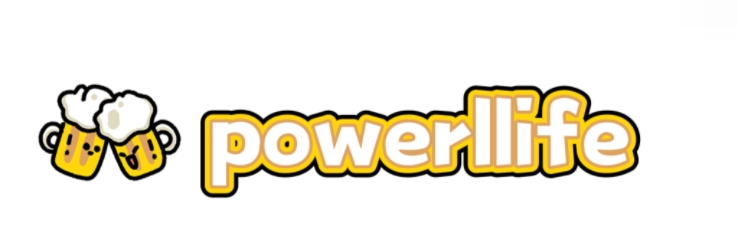How Does Baby Music Therapy Enhance Development?
In recent years, baby music therapy has emerged as a powerful tool to support and enhance infant development. Music is a universal language; it speaks to our emotions, influences our cognition, and even helps establish social connections. For babies, music therapy can play a crucial role in promoting neurological, emotional, and social development. This blog delves into how baby music therapy enhances development in various spheres and offers insights into its multifaceted benefits.
The Neuroscience of Music and Infants
The brain of an infant is like a sponge, soaking up various stimuli that shape its development. Research has shown that music has profound effects on brain function. When babies are exposed to music, multiple areas of the brain light up, including those associated with emotion, memory, and even movement. This early exposure is vital as it lays the groundwork for future cognitive skills.
Neuroscientists indicate that engaging with music can encourage the formation of neural connections, particularly in areas responsible for language acquisition and motor skills. For instance, nursery rhymes encourage rhythmic patterns that not only entertain but also enhance auditory processing—a skill that is fundamental for language development. This synchronization of auditory stimuli fosters olfactory, visual, and kinesthetic connections, which are crucial for holistic development.
Emotional and Social Benefits
Music therapy also serves as a medium for emotional expression and social interaction. When parents and caregivers engage in musical activities with their babies, they create a joyful environment filled with emotional resonance. Singing, clapping, or even simply listening together can build a strong attachment between caregiver and child. This bonding is essential to emotional development, as secure attachment fosters higher self-esteem and resilience in later life.
Furthermore, participating in group music sessions can enhance social skills. As babies interact with their peers through shared musical experiences, they learn the nuances of communication, shared focus, and collaborative play. This social interaction not only contributes to emotional intelligence but also instills skills such as empathy and cooperation. Fundamental social skills developed during infancy can pave the way for healthier relationships in the child's future.
Cognitive Development Through Rhythm and Melody
Rhythm and melody are not just elements of music; they also serve as frameworks for cognitive development. Engaging with music exposes babies to patterns and sequences, which are essential for logical reasoning and problem-solving. Simple rhythmic movements, like swaying or bouncing, can enhance motor coordination, a precursor to more complex physical abilities.
Related articles:10 Questions You Should Know About Healthy Meal Prep
Benefits of Custom BOPP Heat Seal Film for Packaging Solutions
Unlocking Benefits of Metalized Pet Film for Packaging
Top Solutions for Common Issues with Floor Heating Pipe Clips
Children's Antibacterial Underpants: Comfort and Hygiene Combined
Additionally, music helps in enhancing memory and attention spans. Repetition of tunes, lyrics, and rhythms enables infants to remember sequences, ultimately aiding their cognitive processing. For instance, learning the sounds and structures of songs can assist babies in identifying linguistic patterns. This is particularly important during the early years, when language acquisition occurs at a rapid pace.
Physical Development and Motor Skills
The role of music therapy in enhancing physical development cannot be overlooked. Many musical activities involve movement, which can help babies refine their motor skills. Whether it’s through dancing, clapping hands, or playing instruments, these actions improve coordination and strengthen muscles. The rhythmic aspect of music encourages babies to move, enhancing their ability to crawl, walk, and engage with their environment.
Moreover, fine motor skills can be developed through the manipulation of musical instruments. Instruments can be simple and easily graspable, helping babies practice their grip and hand-eye coordination. As children explore different sounds and textures, they not only cultivate musicality but also encourage sensory exploration.
Creating a Stimulating Environment
Implementing music therapy at home can be a straightforward yet effective endeavor. Creating a stimulating musical environment involves a few simple steps:
- Incorporate music into daily routines: Sing while changing diapers, bath time, or even during meals. This fosters a sense of consistency and excitement.
- Choose various genres: Exposing babies to diverse musical styles can enhance cognitive flexibility and auditory discrimination.
- Use musical instruments: Simple shakers, drums, or xylophones can unleash creativity and allow babies to explore sound.
- Engage in music-making: Whether it’s singing together or making music with household items, active involvement is crucial.
Conclusion: A Harmonious Path to Development
Baby music therapy presents a harmonious avenue for enhancing development across various domains. From cognitive growth to emotional bonding and physical coordination, the benefits are manifold. Parents and caregivers have a unique opportunity to harness the power of music in nurturing their child’s development. Implementing simple musical activities can enrich a child’s early experiences, resulting in a well-rounded foundation for a lifetime of learning and relationships. Just as each note in a melody contributes to a beautiful song, each moment spent engaging with music contributes to a child’s overall growth and development.
If you are looking for more details, kindly visit Baby Classical Swing, Adjustable Backrest Baby Rocker, Adjustable Multi-Position Baby Swing.

Comments